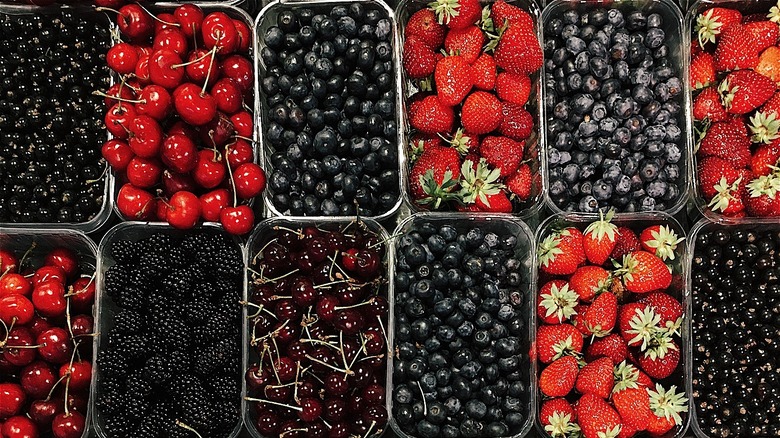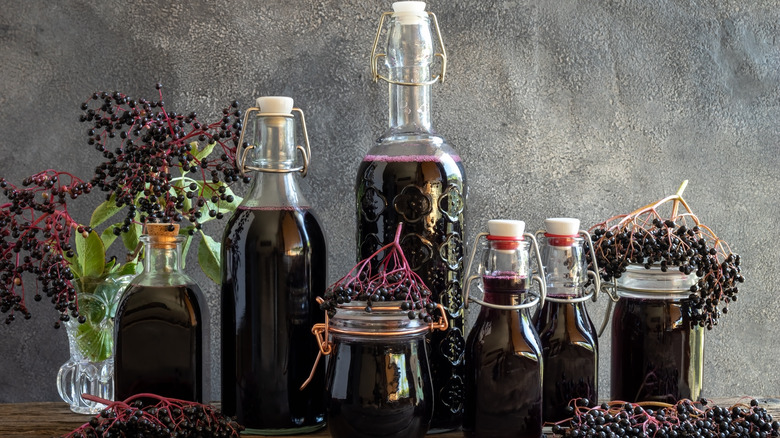This Trendy Berry Is More Dangerous Than You Think
Food trends come and go. Had anybody even heard of acai before 2010? The barely-known Brazilian berry was languishing in obscurity until it completely took off, thanks in part to social media and influencers like Oprah Winfrey touting it as a "superfood," per Social Hospitality. By 2017, the obscure little fruit was bringing in $712 million. So it goes with food trends. Next up: The elderberry. This pretty purple berry has skyrocketed in popularity, with sales increasing by 83.4% between October 2018 and 2019.
Elton John sang about "Elderberry Wine" in the 1970s, so boomers and hippies have been familiar with this happy fruit for a while. Icon that he is, Sir Elton did not put the berry on the map, though. Is it a coincidence that the berry's popularity skyrocketed after Meghan Markle chose it to flavor her wedding cake when she wed Prince Harry in May 2018? The cake served up after they said their vows was a lemon and elderberry creation which incorporated 10 bottles of Sandringham Elderflower Cordial that was made from elderflowers picked on the grounds of Queen Elizabeth's Norfolk estate. Who's to say whether the famous cake is the reason behind the elderberry's rise in stature?
The dangers of the elderberry
The elderberry has definitely been around awhile. According to Web MD, it has been considered a remedy for HIV and AIDS, as well as a means of boosting the immune system, alleviating stress, constipation, joint and muscle pain, fever, headaches, and kidney problems. Healthline says it was used by ancient Egyptians to improve complexions and heal burns, and is high in nutrients, antioxidants, vitamin C, and dietary fiber. Elderberry syrup is now a staple on the shelves of the big name drug stores, and many people are striving to concoct the popular syrup themselves.
So, plant an elderberry tree, and enjoy the health benefits once it produces fruit. Sounds good, right? Hold on a minute. Before you venture into the consumption of fresh elderberries, you should know that, per 10 Most Today, the leaves, twigs and seeds of this flowering tree contain glycoside, an element that creates cyanide, and can cause pain, diarrhea, nausea, vomiting, or even coma. And the berries? Raw elderberries are indeed edible, though a bit tart, if they are ripe. Meanwhile, unripened elderberries are toxic. They should only be consumed when they are deep purple, blue, or black. Cooking them also destroys the cyanide, per Wholesome Children, so if you're not sure your fruit is ripe enough to consume, maybe cook it up and make a yummy jar of jam – or a cordial, perhaps? After all, if it's good for those royals, it's good for the rest of us, right?

